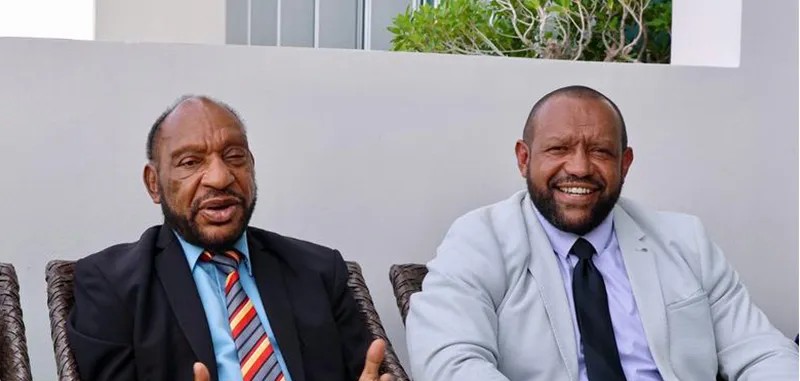In a bold and direct address to the nation, Alternate Papua New Guinea Prime Minister Nominee Sir Peter Ipatas has issued a call to fellow leaders to act decisively amid what he described as the “deteriorating state of the nation.”
Speaking during a press conference held by the Opposition Wednesday, Sir Ipatas laid out his motivations for accepting the nomination and the critical reforms he hopes to lead.
Sir Ipatas, who accepted the nomination following discussions with coalition leaders disenchanted with the Prime Minister’s performance, said the time had come for clarity and courage among leaders.
“I am here because of that call made by leaders who represent their own people,” he said. “If they believed then that the Prime Minister was failing the country, this is their opportunity to act.”
At the heart of his proposed leadership agenda are two foundational reforms: restoring integrity to Papua New Guinea’s electoral process and addressing the country’s escalating law and order crisis.
“Our electoral system has been corrupted over many elections and this government has done nothing to fix it. A new government under my leadership will prioritize cleaning up the Electoral Commission and ensuring people can freely exercise their right to vote.”
Sir Peter emphasised that the right to vote was a core constitutional right for every citizen, especially those in rural areas whose voices are often silenced through flawed electoral systems.
Turning to law and order, Ipatas painted a bleak picture of life for ordinary citizens. “Without peace in the community, how can we talk about economic progress? How can mothers and daughters walk freely in their own country?” he asked.
He stressed that public safety was not only essential for citizens’ well-being but also crucial to attracting investment and enabling sustainable development.
The press conference also featured supporting remarks from other Opposition members, urging government MPs to cross the floor in a vote of no confidence.
Ipatas said, “To all those leaders who once stood with us—now is the time to make your stance clear.”
Meanwhile, Middle Fly MP Maso Hewabi has called on first-term Members of Parliament to prioritise the national interest above all else, stressing that without a stable and functioning Papua New Guinea, district-level service delivery and political careers will be meaningless.
Speaking at the Opposition’s press conference in support of Alternate Prime Minister nominee Sir Peter Ipatas, Hewabi emphasised the urgent need for a shift in mindset among MPs, particularly the younger leaders, who, like himself are new to Parliament and face immense pressure to deliver results at the district level.
“The priority is often our district, but if there is no Papua New Guinea, then there is no Middle Fly District, no Western Province. We must first save the country.”
Hewabi, joined by fellow first-term MPs including Deputy Opposition Leader James Nomane and Hiri-Koiari MP Keith Iduhu, challenged his colleagues in the government to expand their perspective beyond local politics and think as national leaders responsible for preserving the country’s future.
He reminded his peers that their mandate is not merely to serve their constituencies but to represent the collective good of all citizens through Parliament.
“We are elected as national leaders, not just district MPs. We sit in the House of Papua New Guinea—that means we are entrusted to save Papua New Guinea.”
His message was particularly directed at other first-term MPs, whom he referred to as the new generation of leadership with a chance to reshape the country’s course.
“We have the greatest challenge of surviving the next election. But even more important is the challenge of saving the country. If we lose the country, we lose everything.”
Hewabi expressed a deep sense of patriotic obligation, stating that as a young Papua New Guinean, he could not afford to stand idle while the country faced governance and leadership failures.
“This is my home. I’m not a foreigner who can flee if PNG collapses. If the country falls, I fall with it. That’s why I must stand now for my people and for the future.”
“If you believe you’re doing the right thing for your country, then stay where you are. But if not, as leaders elected by the people to see right from wrong, you must make the right decision for the nation,” he concluded.













